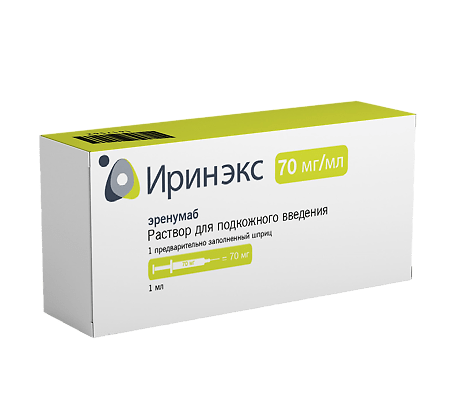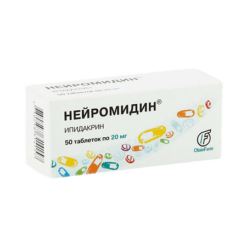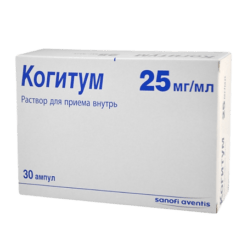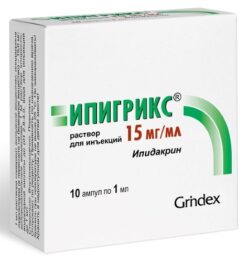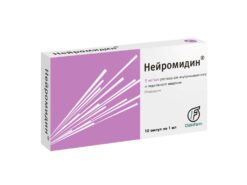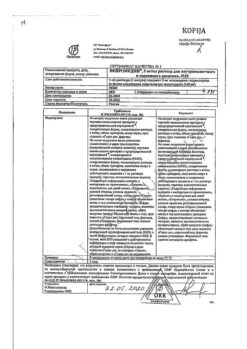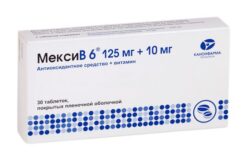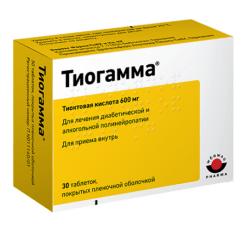No products in the cart.
Irinex, 70 mg/ml 1 ml
€490.00 €468.87
Description
The drug is used to prevent migraine in adults who have at least 4 days of migraine in a month.
Indications
Indications
The drug is used to prevent migraine in adults who have at least 4 migraine days in a month.
Pharmacological effect
Pharmacological effect
Special instructions
Special instructions
Patients with certain underlying cardiovascular diseases were excluded from clinical studies and therefore safety data are not available in these patients.
Patients with latex hypersensitivity
The removable cap of the prefilled syringe and autoinjector (pen) contains dry natural rubber latex, which may cause allergic reactions in latex-sensitive individuals.
Impact on the ability to drive vehicles and/or machinery
The drug Irinex does not have a significant effect on the ability to drive vehicles and/or machines.
Active ingredient
Active ingredient
Erenumab
Composition
Composition
1 ml of the drug contains:
active ingredient:
erenumab 70 mg;
excipients: sucrose, polysorbate-80, glacial acetic acid, sodium hydroxide, water for injection.
Pregnancy
Pregnancy
Pregnancy
There have been no adequate and strictly controlled studies of the use of erenumab in pregnant women. In a reproductive toxicity study in cynomolgus monkeys, in which animals received erenumab during pregnancy and its exposure (assessed by AUC) was 40 or 17 times greater than that in patients receiving erenumab 70 mg or 140 mg once monthly, respectively, no effects were observed on pregnancy, embryofetal development, or postnatal development (up to 6 months of age). Significant serum concentrations of erenumab were determined in newly born monkeys, confirming that erenumab, like other IgG antibodies, crosses the placental barrier.
The harmful effect of erenumab on the fetus when used in women during pregnancy is unknown, since animal studies do not always predict the effect of the drug in humans. As a precaution, it is advisable to avoid using the drug during pregnancy. The use of erenumab during pregnancy is possible only if the expected benefit to the mother outweighs the possible risk to the fetus.
Breastfeeding period
It is unknown whether erenumab passes into breast milk in humans. There are no data on the effect of erenumab on the breastfed infant or on maternal breast milk production. Because many drugs pass into breast milk and the potential for adverse reactions to the drug in breastfed infants, the decision to stop breastfeeding or discontinue the drug should be made taking into account the potential benefits of erenumab for the mother and the potential benefits of breastfeeding for the baby.
Fertility
There are no data on the effect of erenumab on human reproductive function. At systemic exposures of erenumab in mature monkeys up to 283 or 123 times the exposure (assessed by serum AUC) in humans achieved at clinical doses of 70 mg or 140 mg once monthly, there were no adverse effects on surrogate markers of fertility (pathological or histopathological changes in the reproductive organs). observed.
Contraindications
Contraindications
Hypersensitivity to the active or excipients included in the drug.
There is no experience of medical use in children.
Side Effects
Side Effects
Data from 2 phase II clinical trials and 2 phase III clinical trials in patients with migraine were pooled to evaluate the safety of erenumab over 12 weeks of treatment compared with placebo.
A total of 2656 patients were included in these studies (1613 received erenumab, 1043 received placebo). Of these, 893 patients received erenumab at a dose of 70 mg and 507 at a dose of 140 mg.
The overall safety population, including ongoing open-label phase extension studies, included 2537 patients (2310.3 patient-years) who received at least 1 dose of erenumab: 2066 patients received the drug for at least 6 months and 1213 patients received at least 12 months.
Summary of Adverse Reactions (ARs)
All adverse events reported in patients receiving erenumab during the 12-week placebo-controlled clinical trial period are shown in Table 1. Most adverse events were mild or moderate in severity.
Below, ADRs are grouped according to the MedDRA classification of organs and organ systems, and are listed in order of decreasing frequency of occurrence.
The frequency of occurrence was assessed as follows: “very common” – ≥10%, “common” – ≥1 – < 10%, “uncommon” – ³0.1% – < 1%, “rare” – ≥0.01 – < 0.1%, “very rare” – < 0.01%, including individual reports, “frequency unknown” - cannot be determined from the available data. Within each frequency category, NRs are distributed in order of decreasing frequency of occurrence.
Table 1. Adverse events that occurred during the use of erenumab
System-organ class HP Frequency category
Immune system disorders – Hypersensitivity reactions including rash, swelling and urticaria – Common
General disorders and administration site disorders – Administration site reactions – Common
Gastrointestinal disorders – Constipation – Common
Musculoskeletal and connective tissue disorders – Muscle spasm – Common
Skin and subcutaneous tissue disorders – Itching – Often
Description of selected adverse reactions
Reactions at the injection site
In a pooled analysis of the 12-week placebo-controlled clinical trial period, the most common injection site reactions in patients receiving erenumab were injection site pain, injection site erythema, and injection site pruritus. Most injection site reactions were grade 1 (mild) and transient. Typically, pain at the injection site goes away within 1 hour after the injection. In one patient who received erenumab 70 mg SC, the drug was discontinued due to the development of a rash at the injection site. No patients receiving erenumab 140 mg SC had their drug discontinued due to injection site reactions during the 12-week placebo-controlled study period.
Immunogenicity
Like all proteins that have a therapeutic effect, erenumab can induce an immune response. Immunogenicity was assessed using an immunoassay to detect anti-erenumab binding antibodies. For patients whose sera were detected with antibodies to erenumab in the screening immunoassay, an in vitro biological assay was performed to detect neutralizing antibodies.
In 4 studies of migraine prophylaxis during the double-blind phase of the study, the incidence of antibody formation to erenumab in patients receiving erenumab at a dose of 70 mg and 140 mg was 6.3% (56/884, with 3 patients having neutralizing activity determined in vitro) and 2.6% (13/504, with no in vitro neutralizing activity determined in any patient). The formation of antibodies to erenumab did not affect its effectiveness or safety.
The determined frequency of antibody formation to a drug largely depends on the sensitivity and specificity of the assay. In addition, the frequency of detection of antibodies (including neutralizing ones) in blood serum may depend on a number of factors, which include the method of analysis, the method and time of obtaining samples, concomitant therapy and diseases. For these reasons, comparing the incidence of antibodies to erenumab with the incidence of antibodies to other drugs may lead to misleading conclusions.
If any of the side effects indicated in the instructions get worse, or you notice any other side effects not listed in the instructions, tell your doctor.
Interaction
Interaction
In an open-label pharmacokinetic drug interaction study of erenumab and combined oral contraceptives in healthy women, erenumab (single 140 mg subcutaneous injection) did not affect the pharmacokinetics of combined oral contraceptives containing ethinyl estradiol and norgestimate.
In a randomized, double-blind, placebo-controlled study in healthy volunteers, erenumab (single 140 mg IV dose) administered concomitantly with sumatriptan had no effect on resting blood pressure compared with sumatriptan alone. Erenumab had no effect on the pharmacokinetics of sumatriptan.
Erenumab is not metabolized by cytochrome P450 isoenzymes; it is also unlikely that it could cause significant changes in the concentrations of proinflammatory cytokines that can influence the expression or activity of cytochrome P450 isoenzymes. For this reason, drug interactions with the simultaneous use of drugs that are substrates, inducers or inhibitors of cytochrome P450 isoenzymes seem unlikely.
Influence on the results of laboratory and diagnostic tests
The effect of erenumab on laboratory and/or diagnostic test results has not been studied.
Overdose
Overdose
In clinical studies, there were no cases of erenumab overdose in humans. In clinical studies, erenumab was administered subcutaneously at doses up to 280 mg without any evidence of dose-limiting toxicity. In case of overdose, supportive and symptomatic therapy should be provided as needed.
Storage conditions
Storage conditions
At temperatures from 2 to 8 °C. Do not freeze.
Store pre-filled syringes/pens in the original carton to protect from light.
Keep out of the reach and sight of children.
Shelf life
Shelf life
2 years.
Do not use after expiration date.
Manufacturer
Manufacturer
Amgen Manufacturing Limited, Netherlands
Additional information
| Shelf life | 2 years. Do not use after the expiration date. |
|---|---|
| Conditions of storage | At a temperature of 2 to 8 ° C. Do not freeze. Store prefilled syringes/ syringe pens in the original carton pack to protect from light exposure. Store out of reach and out of sight of children. |
| Manufacturer | Amgen Manufacturing Limited, Netherlands |
| Medication form | solution |
| Brand | Amgen Manufacturing Limited |
Related products
Buy Irinex, 70 mg/ml 1 ml with delivery to USA, UK, Europe and over 120 other countries.

